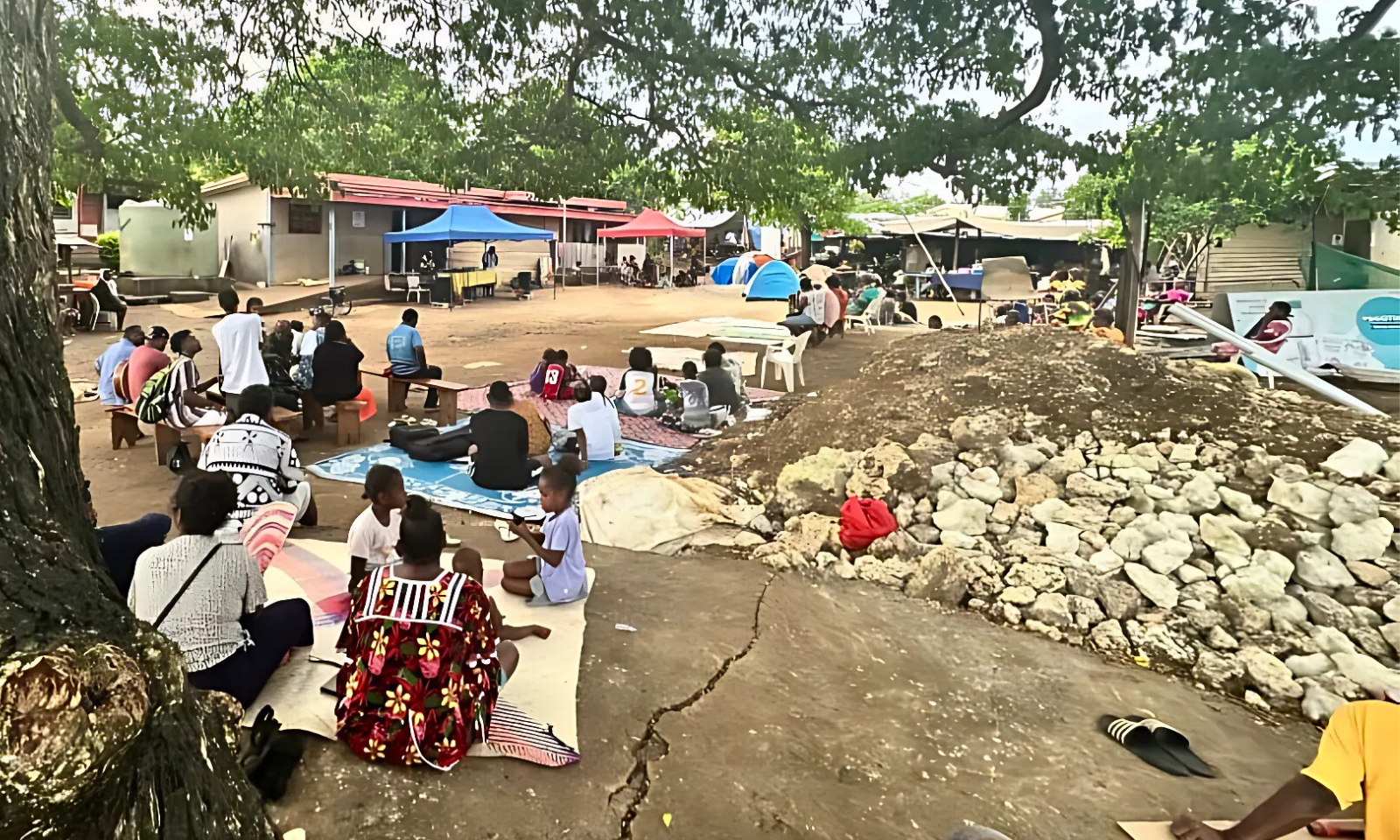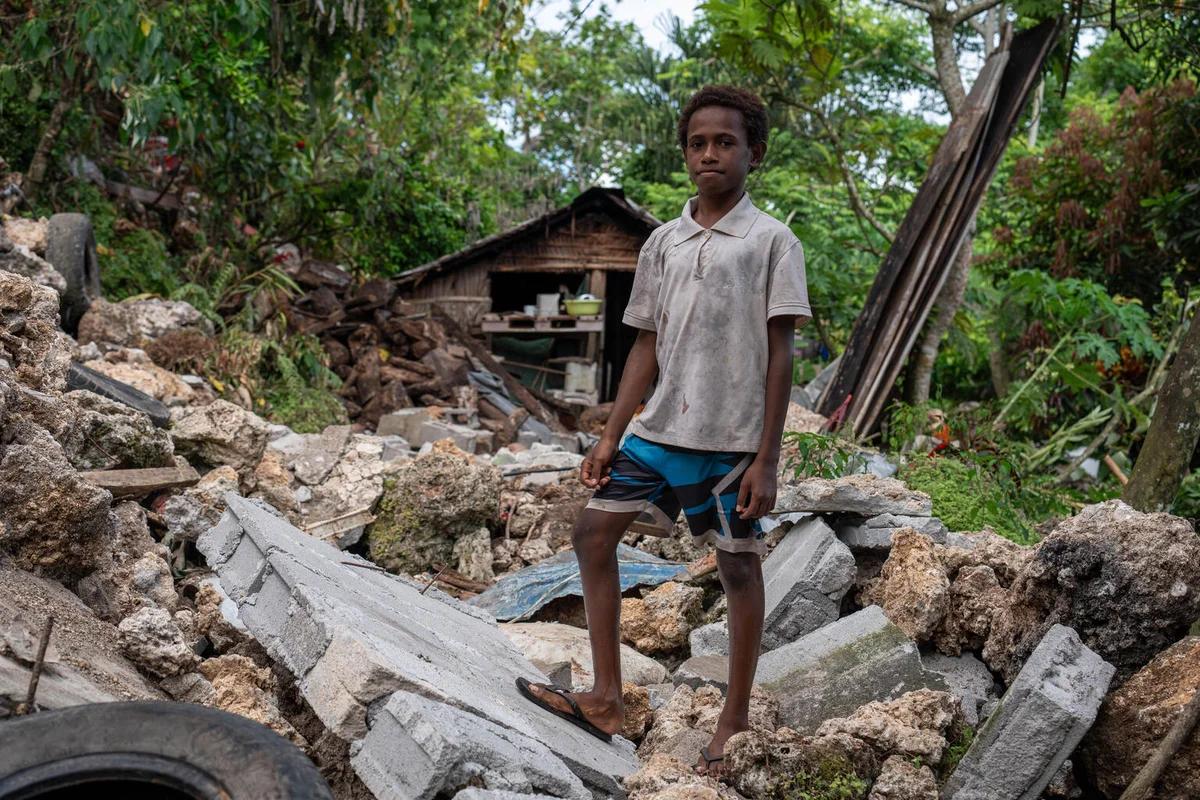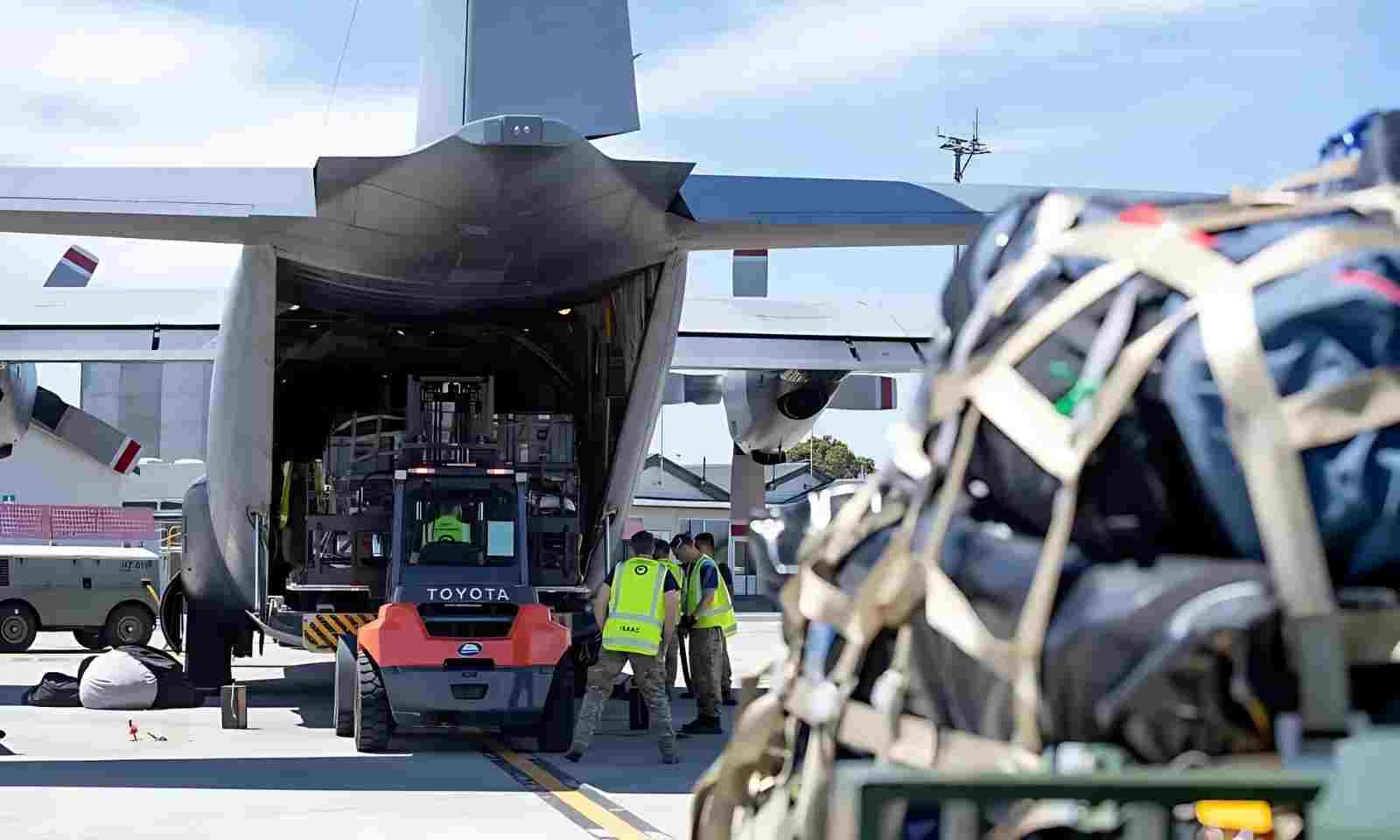

Rescue teams conduct a search for survivors in Port Vila following 7.3 magnitude earthquake in December.
Photo/Vanuatu Police
Report reveals gender violence risks after Vanuatu earthquake
A governmentt report cites rising gender violence risks and urgent needs after the 7.3 magnitude earthquake in December.



Christmas under the sun: How Pasifika are celebrating amid rising heat, extreme weather




Christmas under the sun: How Pasifika are celebrating amid rising heat, extreme weather

Concerns over gender-based violence in Vanuatu have emerged in a government report following the devastating earthquake in Port Vila just over three weeks ago.
Officials believe the death toll from the magnitude 7.3 quake on December 17 still sits at 14, with 265 injured.
The Vanuatu Police Force, who are also part of the search and rescue operation, reported that seven people had died at the Billabong Building.
The other victims died around the Port Vila area.
A report just released from the National Disaster Management Office (NDMO) provides a distressing picture of its impact on the nation.
The NDMO said 80,000 people were affected and 1473 displaced from their homes.
The report reveals that those displaced and living in poorly-lit, substandard accommodation or outdoors are more at risk of gender-based violence.
It highlights the need for greater awareness around the issue, access to counselling services and improved lighting.
Since the earthquake, 1954 people have received emergency shelter supplies, 13,794 relief items were handed over, and 1300 households were surveyed for food and security.
Power, water and phone services have largely been restored, though internet services are still under repair.
Save the Children Vanuatu operations director Lavinia Mahit told RNZ Pacific they are working to rehabilitate children before school starts next month.
"We've set up what we call child-friendly spaces. We have five sites that are actively running and these spaces provide a safe haven where children can come and play, draw, read and paint," she said.
"So this provides an opportunity for them to be themselves and be children again and forget about the trauma that happened."
Mahit said the bulk of the schools are fit to return to.

A seaside community in Vanuatu holds an open air church service to bring people together. Photo: RNZ Pacific / Koroi Hawkins
The report outlines urgent humanitarian needs in Vanuatu, which include:
Essential household items, including sleeping gear, cooking utensils, solar lamps, tarpaulins and toolkits
Risk assessments for damaged properties, including those in peri-urban and rural areas
The repair or rebuild of a large number of houses
A skill shortage to assess structural damage
The report said the ongoing cyclone risk, with heavy rain and strong winds, was exacerbating damage to buildings and delaying recovery efforts.

Save the Children working to rehabilitate children. Photo/Save The Children.
Urgent issues in the health sector include:
Critical water shortages in all eight health facilities
A lack of psychological support for healthcare workers and patients
Rising cases of influenza-like illness and diarrhoea due to contaminated water
A shortage of medical supplies at the Vila Central Hospital
Displacement and evacuation centre management issues include:
275 people sheltering in four evacuation centres and 1198 in host households
A shortage of medical supplies, food, water, lighting, shelter kits and toiletries
Logistically, Vanuatu needs:
Effective allocation and monitoring of incoming relief supplies to ensure equal distribution
The timely delivery of critical items to families
More transport and personnel to manage and deliver the large volume of relief items
Issues with food security and agriculture include:
The need to assess and plan to ensure consistent food delivery to affected households
Support for agricultural recovery, including essential farming supplies
Aftershocks continue
The Vanuatu's Meteorology and Geohazards Department, VMGD, said aftershocks were continuing.
"Following ongoing rumours, we would like to make it clear that there are no warnings for earthquakes or tsunamis," it said in a statement.
"Earthquakes cannot be predicted."
The VMGD said showers are expected to intensify over the northern islands.
It said there is a risk of landslides in areas around Efate, where heavy rainfall may trigger movement in regions weakened by recent earthquakes.
Authorities are urging caution in these areas.
A marine strong wind warning has also been issued for the southern and central waters of Vanuatu.

Photo/NZ Defence Force/Sergeant Maria Eves
Recovery plan
Peter Korisa, of the Recovery Operation Centre, told the VBTC the recovery plan will take about two years and will be divided into different phases.
He said engineers' assessments are ongoing to determine building safety, with occupancy certificates to be issued for cleared buildings.
The Recovery Operation Centre has issued a warning to the public in Port Vila and on Efate regarding restricted access to the CBD.
The Vanuatu Daily Post reported authorities have observed numerous unauthorised people and vehicles entering the restricted zones.
Anyone attempting to enter the restricted areas without permission will face arrest and prosecution.
Entry into buildings will only be allowed after a safety certificate is issued by the Public Works Department.